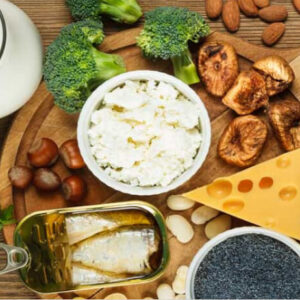Learning how to lower the risk of high blood pressure is a priority for millions of people worldwide. Research suggests that certain dietary patterns may play a significant role in cardiovascular health. Understanding which foods to limit and which to include in your diet could be beneficial for those looking to lower the risk of high blood pressure naturally.

Understanding How Diet Can Help Lower the Risk of High Blood Pressure
High blood pressure, also known as hypertension, is often called a “silent condition” because it typically has no obvious symptoms. According to health organizations, lifestyle factors including diet may significantly influence your ability to lower the risk of high blood pressure over time.
Research has indicated that certain processed foods, particularly deli meats, may be associated with higher blood pressure readings in some individuals. Understanding these connections is essential for anyone looking to lower the risk of high blood pressure through dietary modifications. One study suggested that consuming processed meats regularly might be linked to increased cardiovascular risks.
Why Processed Deli Meats May Impact Blood Pressure
High Sodium Content
Many processed deli meats contain significant amounts of sodium, which food manufacturers add to enhance flavor and extend shelf life. According to nutrition experts, these products are among the higher-sodium foods available in grocery stores.
A typical 85-gram serving of deli meat may contain approximately 750 mg of sodium. To put this in perspective, health organizations generally recommend limiting daily sodium intake to 2,300 mg, with some suggesting even lower amounts for certain individuals.
Excess sodium intake has been associated with water retention and increased blood volume in some people, which may contribute to elevated blood pressure readings.
Preservative Concerns
Beyond sodium, processed meats often contain preservatives such as nitrates and nitrites. While these compounds help maintain color and freshness, some research suggests they may have different effects on the body compared to naturally occurring nitrates found in vegetables.
Some studies have explored potential connections between these additives and various health concerns, though more research is needed to fully understand these relationships.
Limited Nutritional Benefits
Processed meats typically provide little to no dietary fiber, which is an important nutrient for overall health. Research published in cardiovascular journals suggests that adequate fiber intake may support healthy blood pressure levels through various mechanisms, including supporting beneficial gut bacteria.
Foods That May Help You Lower the Risk of High Blood Pressure
Instead of relying heavily on processed meats, consider incorporating these nutrient-rich options that research suggests may be beneficial for those seeking to lower the risk of high blood pressure:
Potassium-Rich Fruits Fruits such as apricots, bananas, prunes, and watermelon naturally contain potassium, which may help balance sodium levels in the body. These foods also provide dietary fiber and various vitamins.
Nutrient-Dense Vegetables Leafy greens, avocados, beans, and legumes offer both potassium and fiber. These vegetables are staples in many heart-healthy eating patterns recommended by nutrition professionals.
Low-Fat Dairy and Alternatives Low-fat dairy products and fortified plant-based alternatives are components of eating patterns like the DASH diet, which has been studied for its potential cardiovascular benefits. These foods provide calcium and potassium.
Whole Grains Whole grain products offer fiber and magnesium, minerals that may support various bodily functions including cardiovascular health. Look for products labeled as 100% whole grain for maximum nutritional benefit.
Omega-3 Rich Fish Fatty fish including salmon, mackerel, anchovies, herring, and sardines contain omega-3 fatty acids (DHA and EPA). Research has explored the potential cardiovascular benefits of these nutrients.
Adequate Hydration Maintaining proper hydration supports many bodily functions, including helping the kidneys process sodium efficiently. Water-rich foods like cucumbers, melons, oranges, and lettuce can contribute to daily fluid intake alongside regular water consumption.
Creating a Balanced Approach to Lower the Risk of High Blood Pressure
Rather than focusing on eliminating specific foods entirely, many nutrition experts suggest adopting an overall eating pattern that emphasizes whole, minimally processed foods. This comprehensive approach may naturally help lower the risk of high blood pressure by reducing intake of high-sodium processed foods while increasing consumption of nutrient-dense options.
Small, gradual changes to eating habits are often more sustainable than dramatic dietary overhauls when working to lower the risk of high blood pressure. Consider working with a registered dietitian or healthcare provider to develop an eating plan that fits your individual needs and goals to lower the risk of high blood pressure.
Key Takeaways
While no single food or dietary change can guarantee specific health outcomes, research suggests that certain dietary patterns may support cardiovascular wellness. Limiting highly processed foods while emphasizing fruits, vegetables, whole grains, and other nutrient-dense options aligns with recommendations from major health organizations.
Remember that blood pressure is influenced by many factors including genetics, age, physical activity, stress levels, and overall health status. Diet is just one component of a comprehensive approach to cardiovascular wellness.
Disclaimer: This article is for informational purposes only and should not replace professional medical advice. Always consult with your healthcare provider before making significant dietary changes or if you have concerns about blood pressure.






